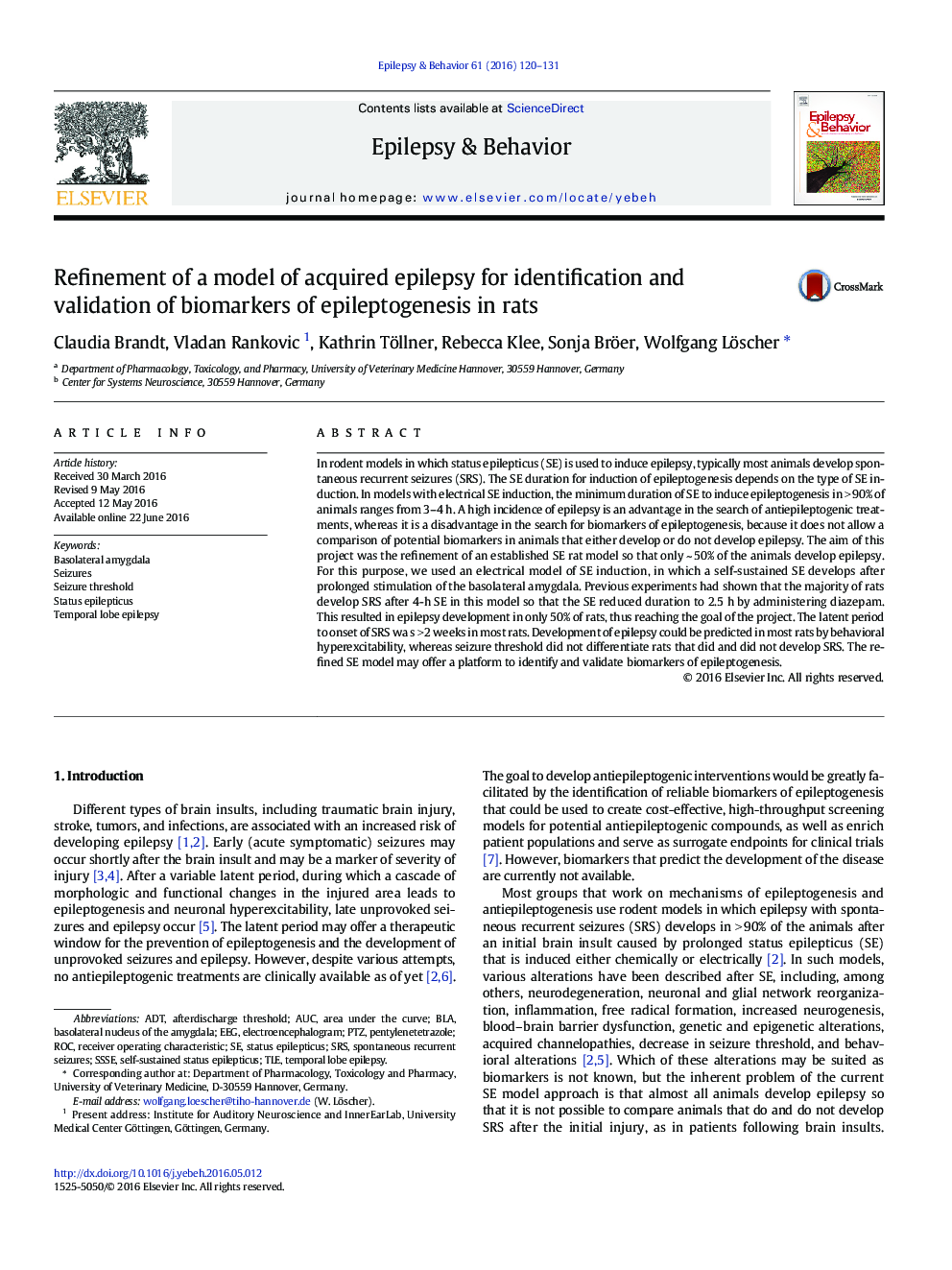| Article ID | Journal | Published Year | Pages | File Type |
|---|---|---|---|---|
| 6009941 | Epilepsy & Behavior | 2016 | 12 Pages |
â¢Status epilepticus in rodent models usually induces epilepsy in the majority of animals.â¢This hampers discovery of biomarkers of epileptogenesis in such models.â¢We refined an electrical model of status epilepticus to lead to epilepsy in ~ 50% of epileptic rats.â¢This goal was reached by reducing duration of status epilepticus from 4 to 2.5 h.â¢Several phenotypic biomarkers were compared in rats that did or did not develop epilepsy.
In rodent models in which status epilepticus (SE) is used to induce epilepsy, typically most animals develop spontaneous recurrent seizures (SRS). The SE duration for induction of epileptogenesis depends on the type of SE induction. In models with electrical SE induction, the minimum duration of SE to induce epileptogenesis in >Â 90% of animals ranges from 3-4Â h. A high incidence of epilepsy is an advantage in the search of antiepileptogenic treatments, whereas it is a disadvantage in the search for biomarkers of epileptogenesis, because it does not allow a comparison of potential biomarkers in animals that either develop or do not develop epilepsy. The aim of this project was the refinement of an established SE rat model so that only ~Â 50% of the animals develop epilepsy. For this purpose, we used an electrical model of SE induction, in which a self-sustained SE develops after prolonged stimulation of the basolateral amygdala. Previous experiments had shown that the majority of rats develop SRS after 4-h SE in this model so that the SE reduced duration to 2.5Â h by administering diazepam. This resulted in epilepsy development in only 50% of rats, thus reaching the goal of the project. The latent period to onset of SRS wa s >Â 2Â weeks in most rats. Development of epilepsy could be predicted in most rats by behavioral hyperexcitability, whereas seizure threshold did not differentiate rats that did and did not develop SRS. The refined SE model may offer a platform to identify and validate biomarkers of epileptogenesis.
